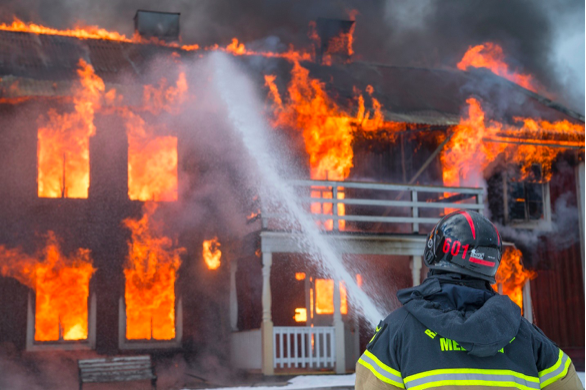No one wants to make any home insurance claim resulting from a fire, flood, or any other type of loss or disaster. You can count yourself fortunate if you never need to make a home insurance claim, but it does happen, and when it does, you will depend on the compensation from your insurance company to get your life back to normal.
Your insurance policy is meant to cover the costs of repairing structural damage to your dwelling, replacing lost personal belongings, and help you pay for the expenses associated with having to live elsewhere while your home is repaired.
Below are some tips for navigating the complicated and overwhelming claim process.
Call Your Insurer Quickly
It’s essential that you inform your insurer quickly after you have suffered a loss. Not only might your insurance policy require you to contact them immediately, but it is also in your best interest to begin the claims process early. The earlier your insurer is involved, the earlier your claim is likely to be resolved. The insurer also often organizes the structural repairs with one of its own preferred contractors, so the sooner they’re involved, the sooner they can call in the contractor and the sooner the repairs will begin.
Document and Keep Damaged Items
Once you are allowed re-entry, it will be tempting to begin the cleanup right away, starting with throwing the damaged things away. There are several reasons NOT to start throwing away damaged items. First and foremost, it can be dangerous to do this yourself. The air quality in your home can be toxic and soot has likely made its way into your damaged personal items. A house fire will burn through materials like plastics, chemicals, fabrics, and construction materials and those burned out materials will form some of the ash that settles on other items. The second reason is that your insurance company will need to review the damage, including those damaged personal belongings.
If you are removing salvageable items because you want to attempt to restore them and you need to move quickly, carefully document the process, such as photographing items before they are moved.
Find & Keep Your Receipts
Receipts are important evidence of your claims both in terms of lost content and additional living expenses. Insurers will require you to provide receipts for additional living expenses, and while you may have lost the paper receipts for the personal belongings that were damaged in a fire or flood, any email receipts or account statements that you can provide are useful. Take advantage of email receipts if retailers offer them, especially on your more expensive purchases.
Don’t File Your Claim Alone
The insurance company will hire an insurance adjuster to evaluate the damage to your home and review your claims. They might work directly for the insurance company or for a third-party firm that has been hired by the insurance company, and they have an incentive to minimize your claim.
Dealing with an insurance adjuster can be stressful and intimidating. They are experienced professionals while you are just trying to get a fair payout to recover from your loss. You may want to get help with your home insurance claim from a home insurance lawyer or public insurance adjuster. A home insurance lawyer can do everything a public claims adjuster does but with legal training and expertise to see your claim through to its conclusion.
Handle your home insurance claim carefully. Find out what you should do before you act, and get in touch with your insurance company promptly.













